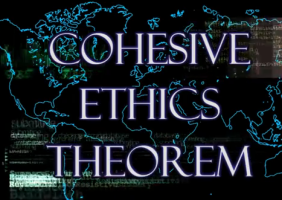Below is a reproduction – with permission – of the first lesson of the present course (Creating with the Soul) at the Marghdeen Learning Centre. It’s such a brilliant and interesting take on Jinnah’s legacy that I positively had to share it here. [Images are taken from the original article as it appeared.]
On a separate note, both my books Systems and Secular Jinnah & Pakistan are part of the recommended reading for this particular course, which is about the destinies of nations starting with the Pakistan idea.
Enjoy! – SK
1.1 How to choose your destiny
Dear Friends,
Welcome to the new online course, and please allow me to start it without any further preludes :). So, there are three variables involved in each one of us choosing our destiny. They are: (a) the current of history; (b) the destiny of society; and (c) the will of the individual himself or herself.
This is because the current of history, which is always evolutionary, moderates the destiny of each society. The destiny of each society generates a menu of choices from which every individual can pick. Please allow me to explain this with an example.
Case Study
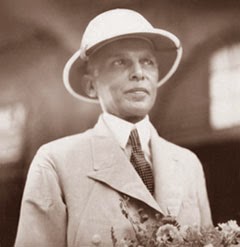
Barrister Muhammad Ali Jinnah had become one of the least influential political figures by 1932. He was a particularly unlucky man. Each time he achieved something big, it would be taken away from him. In 1916, he was hailed as “the Ambassador of Hindu-Muslim Unity”, but three years later he was being hooted down by Hindus and Muslims alike. He married for love in 1918, but it turned sour and ended in the separation and death of his wife in less than ten years.
By 1932, his public career seemed to have ended. He had left his homeland, and had taken abode in England. He was not even invited to the Third Round Table Conference of the Indian leaders held in London that year.
Fifty-six years old and not growing any younger, Barrister Jinnah was suffering at the hands of destiny. So, he decided to ask God for a new one. But how?
First, he looked up the destiny of his nation. Their “final destiny”, as recently revealed by Iqbal, was a consolidated Muslim state.
With this understanding, Jinnah picked up a new role for himself. It was to be the founder of that state. He got it.
Hence, understanding the destiny of his nation empowered him to choose his own destiny. From being one of the least significant leaders in 1932, he became “the Great Leader” by 1938 and the founder of the largest Islamic state and the fifth largest of the world in 1947, so that posterity was eventually going to say:
Few individuals significantly alter the course of history. Fewer still modify the map of the world. Hardly anyone can be credited with creating a nation-state. Muhammad Ali Jinnah did all three.
The Catch
Jinnah was not the only one in the 1930s to be attempting stuff like altering the course of history, etc. Just as he became the “Quaid-i-Azam” of his people, Mussolini was “Il Duce” in Italy and Hitler was the “Fuehrer” in Germany (all titles approximately meaning the same thing). Yet, Jinnah alone made it to the finish. We need to understand this a bit more.
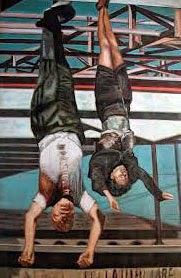
The hazards of ignoring the
“trends of modern times”:
Mussolini and his beloved
after their execution
By the time Jinnah achieved his goal, Italians had executed Mussolini and hung his corpse upside down. Hitler had shot himself and to follow his ideology is now a criminal offence in his country. The legacy of Jinnah, on the other hand, is not only cherished by his own people but his name and his worldview is something which they show off to other nations in a bid for gaining more respect.
Apparently, this is because while other “great leaders” focused only on the interests of their own nations, Jinnah aligned his patriotic ambition with the principles commonly respected by humanity in those days. In addition to the spirit and destiny of his own nation, he also kept in mind the trends of modern times.
This is the third variable, i.e. the current of world history, but that is a theme for the next lesson. Before proceeding, let’s conclude what we observed today.
Conclusion

We fail to be in control of our destinies because we are taught that societies do not have destinies as such. Due to this presumption, we obviously do not attempt to gain any insight into the destiny of our society, and hence fail to meet the prerequisite for taking control of our own futures as individuals.
Question
- What is one thing which you would like to gain from this course? Since this is the first lesson, please formulate a personal objective. It is recommended that you keep it to 100 words, but please use your discretion. Keep it specific and to the point. Please do not mind if I remove your comment from the blog this time, in case I feel that you can do better (and in that case I shall personally email you about to re-write it).
- Please reply to some of the comments posted by others. It is important to interact. Every learner gains more if everybody in the course is engaged. It’s a virtual classroom, so let it be a “commonly adopted goal” that everybody is involved, probed for their input and learning together in a vibrant and lively atmosphere.
This time, I am more excited than usual to see what replies come forth. Please begin!
SK: The Marghdeen Learning Centre is an educational subsidiary body of Iqbal Academy that offers online courses on Iqbal’s philosophy. To learn more, and to sign up, visit www.marghdeen.com



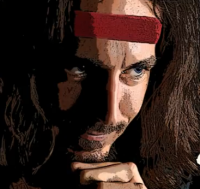
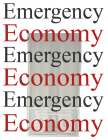

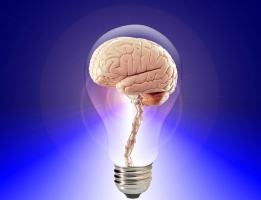

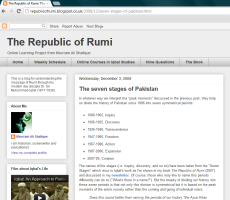
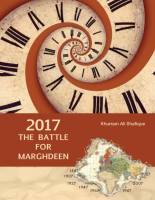 In this work, Mr. Shafique has looked at Pakistan (and also Bangladesh) as a case in point. The most interesting part of the cycle can be seen at stage four – the ‘freedom’ stage (1947-67). At first glance it seems thatPakistanis not moving as we might predict in light of the cycle of stages. As Mr. Shafique shows, this is because the ‘freedom’ stage marks the point at which individuals and small sections of Pakistani society actively began to focus on individualistic goals instead of collective goals. Some commentators on the history of Pakistan have similarly concluded that there is a point of departure from the ‘Pakistan idea’ in the same period. The main difference between most of these commentators and Mr. Shafique however is that Mr. Shafique has illuminated the fundamental reason for the departure in clear terms. ThePakistanidea was the Muslims’ collective basis of partition in 1947, but the point of departure also becomes manifest soon after 1947. The implications for the later stages, especially the final one we have entered as of 2007 (‘creation’), are very interesting indeed, if not alarming, depending on how one interprets the data.
In this work, Mr. Shafique has looked at Pakistan (and also Bangladesh) as a case in point. The most interesting part of the cycle can be seen at stage four – the ‘freedom’ stage (1947-67). At first glance it seems thatPakistanis not moving as we might predict in light of the cycle of stages. As Mr. Shafique shows, this is because the ‘freedom’ stage marks the point at which individuals and small sections of Pakistani society actively began to focus on individualistic goals instead of collective goals. Some commentators on the history of Pakistan have similarly concluded that there is a point of departure from the ‘Pakistan idea’ in the same period. The main difference between most of these commentators and Mr. Shafique however is that Mr. Shafique has illuminated the fundamental reason for the departure in clear terms. ThePakistanidea was the Muslims’ collective basis of partition in 1947, but the point of departure also becomes manifest soon after 1947. The implications for the later stages, especially the final one we have entered as of 2007 (‘creation’), are very interesting indeed, if not alarming, depending on how one interprets the data.